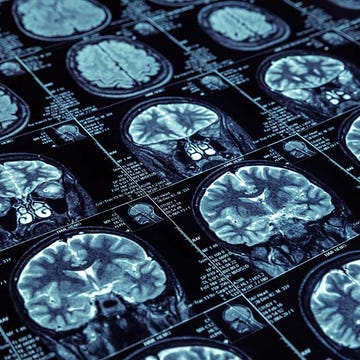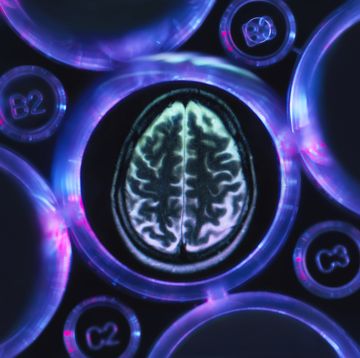- A new study found a simple at-home test called the Self Administered Georecognitive Examination (SAGE) can detect subtle signs of dementia six months earlier than current screenings.
- The test is an easily downloadable and printable four-page exam that patients can take on their own in about 10 to 15 minutes.
- The exam can be taken every six months and scored by your doctor to determine your risk, progression, and necessary steps to treat cognitive decline earlier.
Memory change is a normal sign of aging, but forgetfulness, confusion, and memory loss can be scary signs for many brain and cognitive disorders. But new research points to a convenient at-home test people can take that can determine their cognitive abilities and risk for disorders like Alzheimer’s and other types of dementia.
A new study published in Alzheimer’s Research and Therapy suggests a simple quiz called the Self Administered Georecognitive Examination (SAGE) can be taken on your own and is able to detect the subtle signs of dementia six months earlier than current screening methods. Though the exam cannot diagnose brain disorders, research has found it is a great tool to develop a baseline and track progression with your physician.
If you’re at all concerned about your thinking, problem-solving skills, memory, or other cognitive issues, the SAGE test is an option for determining if you have a cognitive problem that requires medical treatment. The most common reasons for severe cognitive issues are dementia and Alzheimer’s disease, but these symptoms may be related to other treatable disorders, according to The Ohio State University Wexner Medical Center.
What is the SAGE test?
The SAGE test is an easily downloadable and printable four-page exam that patients can take on their own in about 10 to 15 minutes. Patients can retake the exam every six months to continue to watch their brain health and work with their healthcare provider to keep an eye on their progression. There are four versions of the test so patients won’t become familiar with the same exam every six months and it includes questions such as dates and identifying illustrations. Those interested in the exam should take their answers to their healthcare provider for easy scoring, and they can help determine the best next steps based on your results.
Why should you take the test?
“We found SAGE to be an effective screening tool to identify people who would eventually develop dementia, probably six months earlier than the most used screening tool,” Douglas Scharre, M.D., director of the division of cognitive neurology at Ohio State University told Today. He added that one of the main advantages of this self-administered test is patients can easily take the exam while sitting in the waiting room of their physician’s office or at their homes every six months.
Memory and cognitive changes in older adults are often not identified until they’ve progressed into serious diagnoses like dementia or Alzheimer’s. In an attempt to make earlier diagnoses and begin treatment at earlier stages, researchers compared the SAGE to a common clinician-administered test called the Mini-Mental State Examination (MMSE).
“The earlier you’re detected with cognitive impairment, the more choices you have with these treatments and the better they work,” Dr. Scharre said in a video posted with the press release.
What makes this test legit?
The eight-year study evaluated 665 patients from the Ohio State University Memory Disorders Clinic with the SAGE and MMSE exams. The participants included patients with at least two visits six months apart classified based on their results as subjective cognitive decline (SCD), mild cognitive impairment (MCI), or Alzheimer’s disease (AD) dementia. Researchers then compared the change in SAGE and MMSE sores.
Of those evaluated, 400 met the inclusion criteria. Researchers found that SAGE was able to detect when patients were approaching MCI dementia at least six months sooner than those who used the MMSE exam. Of those patients that eventually progressed from MCI to dementia, scores dropped 1.91 points per year on the SAGE test and 1.68 points per year on the MMSE. Of those who initially were found to have Alzheimer’s disease dementia, SAGE scores dropped 1.82 points per year and MMSE scores dropped 2.38 scores per year. Those who were found to have subjective cognitive decline or MCI didn’t have a change in scores during the study.
When should you take this test?
“Any time you or your family member notices a change in your brain function or personality you should take this test,” Dr. Scharre said in the press release. “If that person takes the test every six months and their score drops two or three points over a year and a half, that is a significant difference, and their doctor can use that information to get a jump on identifying the causes of the cognitive loss and to make treatment decisions.”

Arielle Weg is the associate editor at Prevention and loves to share her favorite wellness and nutrition obsessions. She previously managed content at The Vitamin Shoppe, and her work has also appeared in Women’s Health, Men’s Health, Cooking Light, MyRecipes, and more. You can usually find her taking an online workout class or making a mess in the kitchen, creating something delicious she found in her cookbook collection or saved on Instagram.












